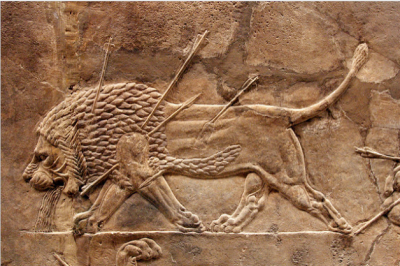|

It is surprising, in the inevitable post-CITES analyses, to have such a diversity of opinions expressed. After all, the commentators were all present at the same Conference were they not? So why do some call the latest CoP 17 meeting a “success” and a “game changer”? While others shrug their shoulders and say that it was the best that could be achieved, now let’s look forward to the next Conference in 2019? And yet others say that CITES is no longer fit for purpose?
How can some proposals to protect species against legal trade sail through with hardly a negative vote by delegates while other species have to suffer through vested-interest dominated “working groups” and be subjected to endless “compromise” resolutions never brought to a vote? How is it that lions, for example, always fall between the cracks? Even when the IUCN published a report before the conference to show that western and central African populations are “critically endangered”, eastern African populations “endangered”, and that only managed and fenced populations on mostly private reserves in South Africa, that contribute little to wild lion survival, are doing at all well? Why are “compromise” resolutions entertained as their primary function is known to be “political” rather than scientific?
No wonder that people like Doug Woodring of the Ocean Recovery Alliance said: “We do not have the luxury of time to be stuck with an outdated CITES system that lacks transparency, is swayed by political and economic interests, and which does not have the scope and scientific resources to protect our natural capital. Instead, a CITES Version 2.0 should make transparent decisions based on scientific data, by using the vast network of information that, for example, the International Union for the Conservation of Nature has at its disposal.”
No wonder that Jeff Flocken of IFAW, a highly concerned international organization seeking best futures for wildlife, complained that “…a number of pro-trade and pro-trophy hunting countries were able to intervene [at CITES] and keep the [lion]proposal from ever being voted on. After the proposal was held hostage by a pivotal voting bloc, a weak compromise emerged …”
Is this the best that CITES can do? Of course, CITES is not empowered to act as a conservation convention, merely to attempt to ensure that species do not suffer from excessive trade. But as Woodring mentions, “Governments that have not taken a stance on preserving nature … have simply used CITES as the “default” laws for regulating trade, as it is the lowest hanging fruit that causes the least pain and effort to adhere to.” Being the “lowest hanging fruit” is not much of an accolade for a Convention with 182 members that purports to prevent trading to extinction…
And, of course, CITES can do little to prevent the illegal trade that is actually the main reason why there is so much concern for the future survival of species like pangolins, elephants, tigers, rhinos, etc. CITES could impose sanctions on nations clearly identified as major players in the illegal trade, but almost always shies away from such measures, instead relying on those nations’ ”promises” to amend their ways.
But this should identify a clear way forward for people concerned about the devastating declines of thousands of wild species. CITES member nations are not bound by what Woodring appropriately calls the “lowest hanging fruit”. CITES will not allow lower standards but cannot prevent enactment of higher standards. Every sovereign nation on the planet can, and most do, legislate what they will and will not import. That includes wildlife products. Australia, France and the Netherlands will not allow imports of lion products that CITES says are fine. The EU will not allow imports of seal skins that CITES says are fine. The USA will not allow imports of polar bear and cheetah products that CITES has approved. Etc.
So let CITES set minimum international standards while sovereign nations set much higher standards. The advantage of calling for enhanced national programs is that citizens will have a much greater say, that there can be demanded a much higher level of transparency, and that rather than entrusting major decisions on wildlife trade to minimally accountable CITES delegates, democratic nations can expect their import decisions to be questioned and scrutinized by citizens with a vote in hand to challenge their politicians.
Perhaps that could be the future of CITES – establishing minimal standards for concerned nations to strengthen as they see fit?
Picture credit: flickr.com
|




